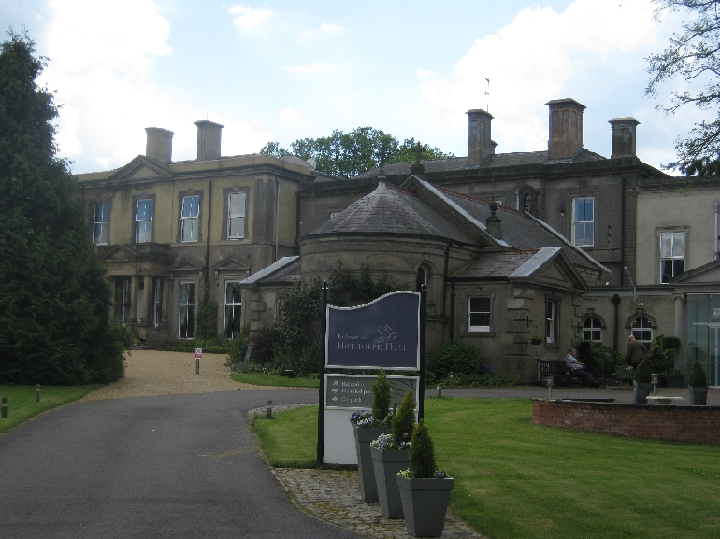
As I explained in my earlier post, I spent the second half of my time in the UK, attending the annual ICS Chaplains Conference which this year took place at Ashburnham Place Conference Centre, near Battle in East Sussex. Whilst being conveniently located for reaching Dover and my return journey to Prague, I wasn’t otherwise very enamoured with the venue.
However, as always, I enjoyed meeting and hearing from my fellow Chaplains ministering in a variety of situations across Europe, and a couple from farther afield. And for the first time, I was invited to speak myself, giving what was billed as a ‘TED talk’, about my ministry in Prague, Brno and Dresden. It was very nice to have positive feedback from several of my colleagues following my talk, as well as an appreciative email from the ICS Mission Director when I returned to Prague.
In particular, it was both a privilege and a challenge to listen to my colleagues Alyson Lamb, Chaplain of St. Michael’s, Paris and Paul Vrolijk, Senior Chaplain of Holy Trinity, Brussels, speaking about their recent experience of terror attacks. Both had direct pastoral involvement with a member of Alyson’s congregation having a relative killed, and a member of Paul’s congregation being injured. Both also spoke the possibility of further attacks and of their respective Churches being possible targets.
Working myself in a European capital city, the possibility of similar events happening here, has often been in the back of my own mind. Likewise, being seen as a Western Christian Church, might even make us a target. Yet as both Alyson and Paul explained, you cannot put security measures in place without discouraging people from coming to worship.
For the final thirty-six hours of the conference, we were joined by my Diocesan Bishop Robert Innes. With Augustine Nwaekwe, a Nigerian priest who is Chaplain of Ostend and Bruges, they spoke about ministering to sub-Saharan Africans who are increasingly part of many of our congregations, including my own. What they both had to say was quite enlightening. Most memorable was learning an African expression addressed to Europeans. ‘You have watches – we have time’ 🙂

Bishop Robert was the Celebrant and Preacher at our Eucharist on the final evening of the conference. Whilst I do appreciate the value of modern technology, I was left to reflect whether we were to give thanks for the Holy Sacrament or for Steve Jobs? 🙂




This takes me back to the days of our Bangor Diocesan clergy school and even earlier to the annual summer conferences of the Welsh Library Association. The settings weren’t necessarily what we might have chosen, but it was always good to get together with colleagues to share experiences and insight and just talk shop. 🙂
Once more, I concur entirely with your sentiments Perpetua. Thank you for ‘catching up’ with my blog & sorry for taking more than 24 hours to both approve your comments and provide coherent replies 🙂
Hi Ricky,
Your last photograph certainly illustrates your ‘thanksgiving’ dilemma to perfection.
The whole fear of the terror threat and the separate but parallel need to be inclusive to our African (and other) immigrant populations, in society as well as in our churches, is perplexing and saddening. Here in Ireland there is a ridiculous rush to label anyone of a dark skin tone as an Islamic extremist and therefore suspicious, to be avoided and shunned. Then there is the equally daft assumption that Ireland having never been a colonial or imperial power is above reproach and somehow exempt from danger of terrorist attack. All this despite our being members of the EU and other European and World bodies with obvious ‘western’ ethos and cultures. For myself the saddest part of this unwelcoming attitude is that we Irish have forgotten the similar treatment doled out to many of our ancestors fleeing famine and poverty in Ireland. Lord save us from hard hearts.
Hi Sean,
I couldn’t resist taking that last photograph before our Eucharist began. I just had to smile at the juxtaposition.
Sadly, what you write about Ireland in your second paragraph, could equally be written about current attitudes amongst many Czechs. Fearing anyone who is ‘not like us’ and forgetting the welcome Czechs received in other countries when fleeing Hitler in 1938, the Communists in 1948, and the Soviets in 1968.